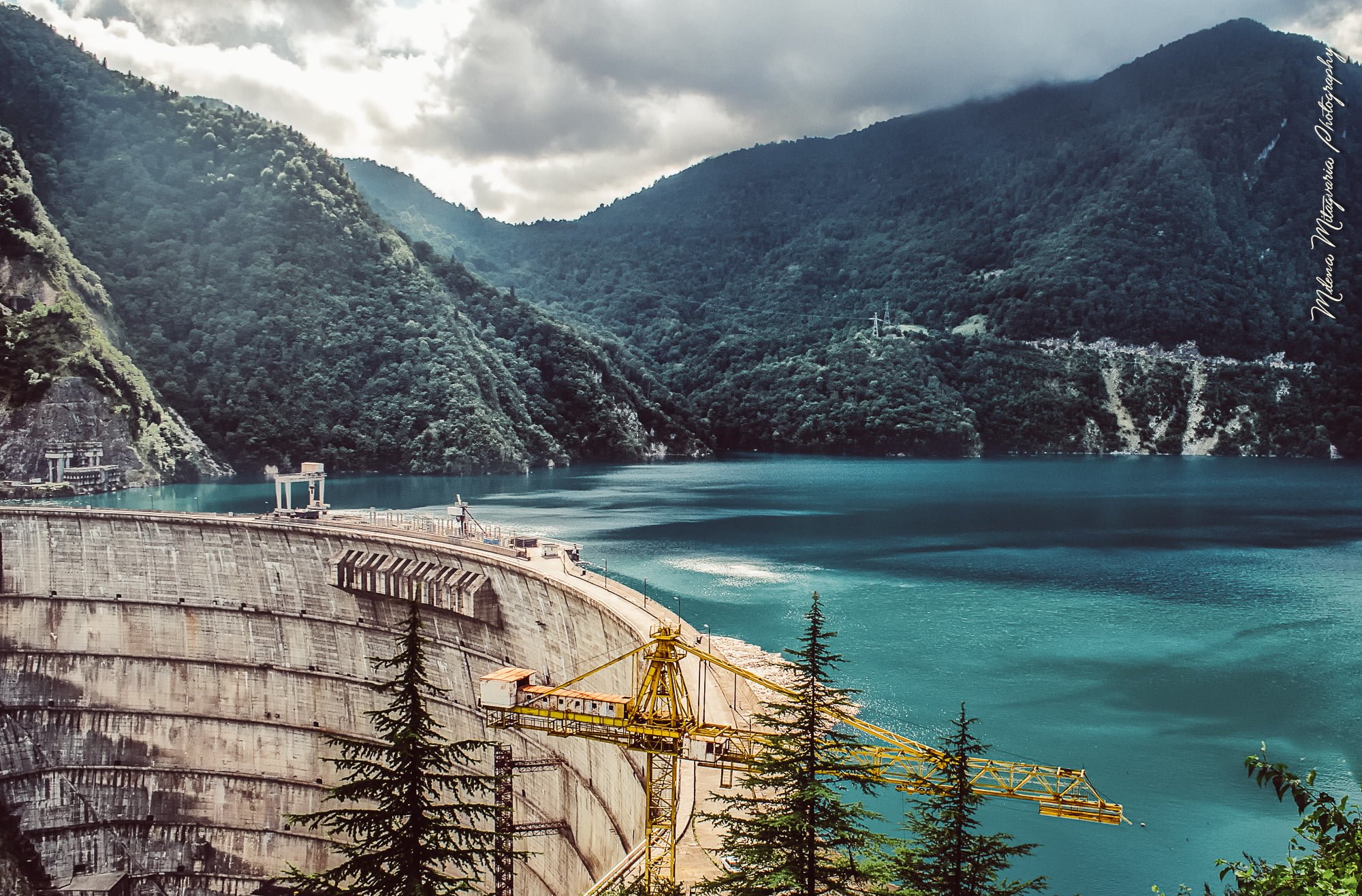Tbilisi, Sokhumi Discuss Enguri HPP
On December 23, the Sokhumi-based Nuzhnaya Gazeta (Нужная Газета) reported that Christina Ozgan, who holds the economy portfolio in occupation administration of Abkhazia, held talks with the Georgian management of the Enguri Hydro-Power Plant. Sokhumi requested additional electricity, the newspaper reports. Russian state-run media outlet Sputink also reported on Ozgan’s trip to Zugdidi.
What was the meeting about?
On December 26, Sputnik Abkhazia quoted Ozgan as saying that consultations on the functioning of Enguri HPP take place “often.” She said the expected volumes of electricity consumption in January-March 2024 and other technical matters of HPP functioning were addressed. According to Ozgan, Sokhumi announced its desire to put into operation four downstream cascading HPPs, located in the Gali district. But the Director General of the Enguri HPP, Levan Mebonia, was quoted as saying that Tbilisi considers such investment “unprofitable.”
When approached for comment, the Georgian Ministry of Economy in Tbilisi refrained from commenting on the Ozgan’s trip. Director General Mebonia did not respond to our queries.
Abkhazia in energy crisis
Abkhazia’s energy problems are deep-rooted and complex, although electricity production is a rare area of cooperation between the Georgian and Abkhazian sides. The Enguri dam is on the territory controlled by Tbilisi, while the turbines are in the Gali district, under occupation. The Enguri HPP is operated jointly, and the early understanding from 1997 was that 40% of the produced energy is consumed by users in Abkhazia and 60% by users in the Georgian government-controlled territory.
While the share of electricity produced by Enguri HPP in the energy mix has been falling in Georgia proper, Abkhazia is almost fully dependent on it, as Mebonia pointed out. The occupied province depends on the HPP to keep its lights on in winter.
In recent years, Abkhazia’s consumption has exceeded the 1997 quotas. In 2019, for example, consumers in Abkhazia used up about 48 percent of the energy generated by Enguri HPP. Whenever Enguri HPP could not supply electricity in sufficient quantity due to a seasonal fall in production or due to rehabilitation works, Russia has covered the shortfall. This has been the case, for example, in December 2020. Yet, this supply is insufficient – when Enguri HPP was offline due to rehabilitation works, Sokhumi had to resort to rolling power cuts to avoid a total blackout.
The critical problem for Sokhumi is that Russia charges for electricity, while the energy generated from Enguri HPP is provided free of charge. Since individual users are not paying electricity fees (while often using free power for “bitcoin mining” which has reportedly become a frequent practice), mobilizing funds is increasingly a problem. On November 15, 2023, Ozgan noted a “difficult situation in the energy sector” in the fourth quarter of this year. She added: “We must understand that electricity is a commodity that must be paid for. It will not be possible to solve the problem indefinitely only with social assistance from Russia.”
On December 24, the media reported that Sokhumi paid RUR 700 million (EUR 6.7 million) for electricity from Russia, covering the costs until the end of the year – but not for the whole winter.
Enguri HPP – A Political lever?
A few weeks ago, the leader of the opposition “European Georgia” party Giga Bokeria put the issue of the Enguri HPP on the public agenda. He held a press briefing near the dam, during which he made a statement that the Enguri dam is the instrument that the Georgian government is obliged to use to exert pressure on the de facto government of the occupied territory. But as he claimed, in turn in recent years the current Georgian Government has increased the amount of electricity supplied to the occupied territory from the Enguri HPP to more than 80 percent (while the original agreement was 40 percent). In this regard, Bokeria points to the killings of Georgian citizens by the occupying forces, and accuses Tbilisi of financing the occupation regime. “We could say that if the situation for our citizens on the ground does not change for the better, the Enguri HPP will be completely closed for them,” – said Bokeria, adding that Tbilisi is not dependent on this single HPP and has other sources of electricity.
Following Ozgan’s visit, Giga Bokeria again commented on the issue with journalists, reiterating his view that the Enguri HPP should be used as a political lever by Tbilisi to influence the de facto regime. “Our goal is not to close the Enguri HPP, but to show the enemy that we can do so if they do not make certain concessions,” – he said, recalling the cases of Irakli Bebua, Giga Otkhozoria and of other ethnic Georgians, who were killed or illegally detained by the occupying forces. He also criticized the government for failing to protect Georgian interests and not using the leverages it has, such as the energy one, vis-à-vis the occupation regime.
Cascade HPPs
The cascade HPPs, that are downstream from the main dam, could help Sokhumi tackle the energy problem at least partially. Out of four cascade stations, only the HPP-I is operating at its installed capacity of 220 megawatts. In 2021, Mebonia told Ekho Kavkaza that the remaining three were on Georgia’s balance sheet and there were plans to restore them. But he now says the restoration would be unprofitable.
This post is also available in: ქართული Русский
